Every Catholic should have a solid home library, as Brandon and Fr. Blake explain. But why is that important? Which books should we definitely have? And where can Catholics find good book recommendations? Join the two bibliophile hosts as they discuss.
Links
- Must-Have Catholic Books
- Bible (we recommend Ignatius Bible, RSV-CE)
- Catechism of the Catholic Church
- Vatican II Documents
- Bible Commentaries
- Liturgy of the Hours (4-volume set)
- Life of Christ
- Frank Sheed – To Know Christ Jesus
- Fulton Sheen – Life of Christ
- Romano Guardini – The Lord
- Pope Benedict XVI
- Church Fathers
- Book Lists
- Brandon Vogt – Best Catholic Books of All Time
- Bishop Barron – Bishop Barron’s Recommend Books
- Mortimer Adler – Great Books of the Western World
- Easton Press – 100 Greatest Books Ever Written
- Art of Manliness – 50 Best Books for Boys and Young Men
- Art of Manliness – 100 Books Every Man Should Read
- Other
- “Why Boys Should Have Libraries” (Fr. Blake, Word on Fire Blog)
- “Read More Books Now” Video Course (ClaritasU)
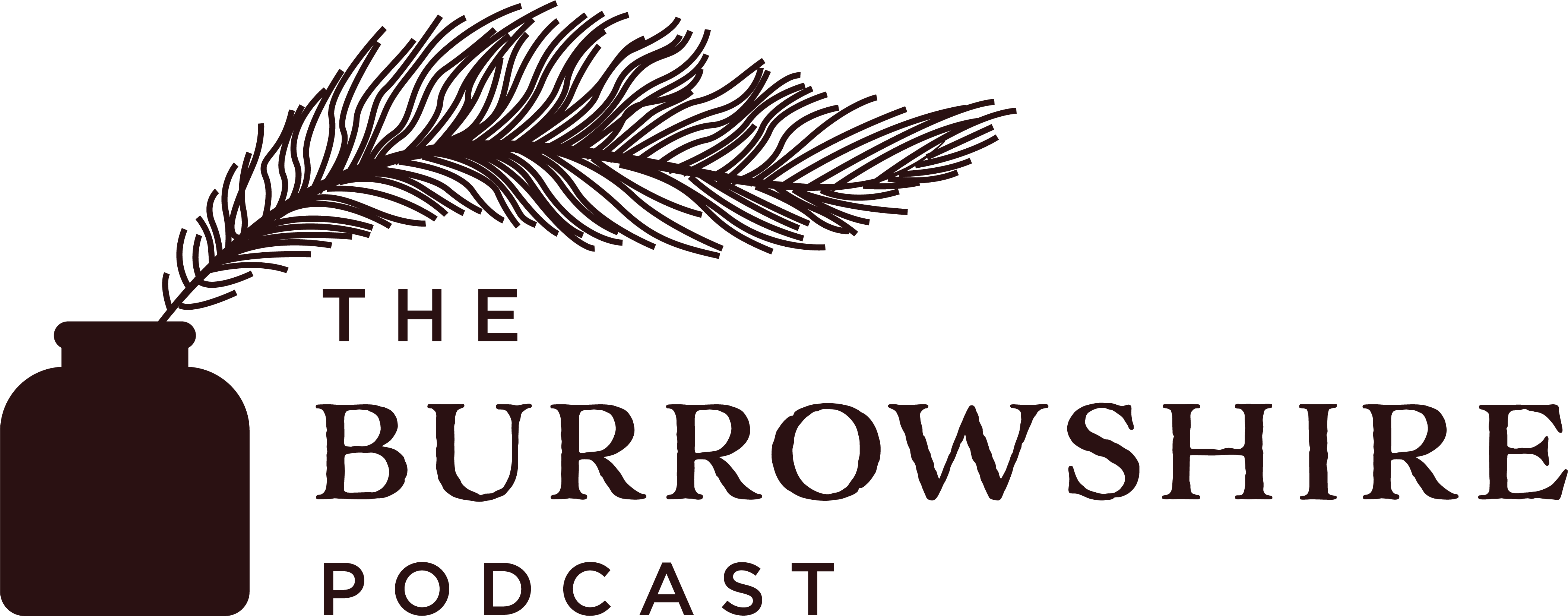

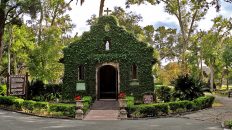

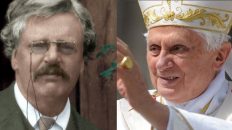
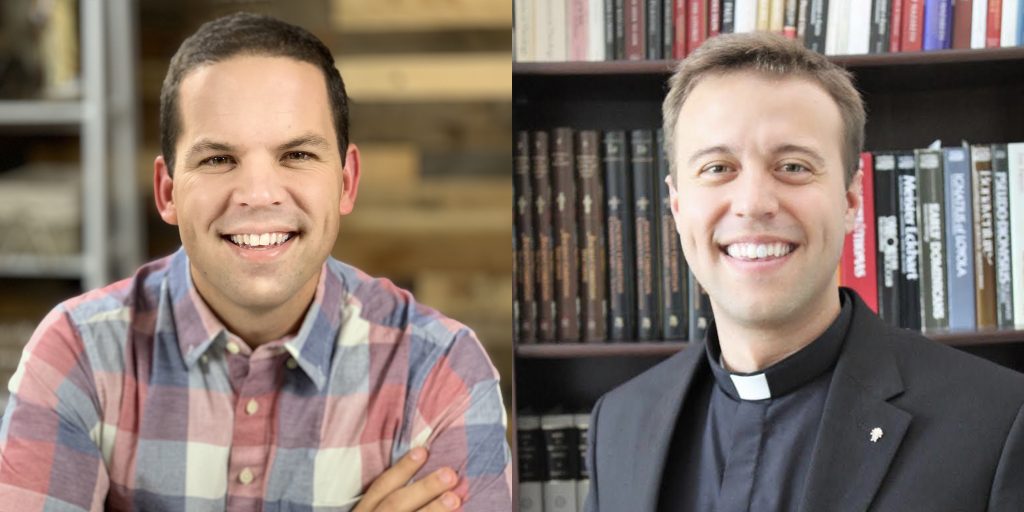

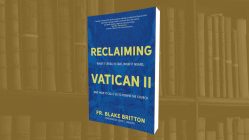
If you are ever in St. Augustine at the Motherhouse of the Sisters of St. Joseph, more specifically, across the street at our Renewal Center, we have there quite a collection of Catholic books. We have opened it to various groups.
Maybe, you might be able to visit. It may be a little while with this virus around. We are quite limited in movement.
Their email address: stjosephrenewal@ssjfl.org
I love highlighters and marking up my books. Books are my friend and I love to give them my hints of color and note as I interact with them. I have enjoyed this podcast so much. Thank you.
When I was a student at FUS, Dr. Hahn recommended a Catholic second hand bookstore in Pittsburgh called Sacred Heart. I got so many excellent books, including many of the ones you discussed!
I really enjoyed your podcast, so much useful information. I ordered three books to start, I have recently started reading the Bible and can’t get enough of it, anxious to start on the lists and wonderful suggestions you gave as well as I’m glad I found you !
Hello,
I am 76 years old and becoming very deaf. I learn by reading, not by listening.
Any chance of transcripts?
Thanks for this awesome podcast and great recommendations! My question is, how do you find the time to read all of these books? The most reading I get done is listening to audiobooks in the car.
Thanks again and God bless you both!
Great question Michael! It is one of those things that needs to be intentional because it is easy to get super busy or become distracted (I’m speaking from personal experience). For me, I am insistent to reserve at least one hour a day to silence and reading. This time is sacrosanct in my schedule. I treat it like a doctors appointment or staff meeting…it is non-negotiable expect for extraordinary circumstances. If we approach it with that kind of mentality, it will eventually become a habit.
Who wrote the Catechism of the Catholic Church?
CATECHISM OF THE CATHOLIC CHURCH. The Catechism of the Catholic Church, promulgated by Pope John Paul II on December 8, 1992, is a compendium of Catholic doctrine that serves as a reference text for teaching and particularly for preparing local catechisms.
The Catechism of the Catholic Church (CCC) is the masterpiece produced while John Paul II was Pope and with the loving guidance of then Cardinal Ratzinger, now Pope Emeritus Benedict XVI.
As a kindred bibliophile, I love everything about this podcast! Thanks for the inspiring recommendations and invaluable book lists. I am especially grateful for the compelling reasons to continue to build my library, instead of purging my shelves as my husband often urges me to do!
What are your recommendations for organizing and cataloging your library? Can you suggest any apps or other methods of keeping track of your books? Sometimes I purchase a book only to find that I already own a copy. Maybe I should try hanging them from the ceiling?!
God bless you and your amazing podcast apostolate!
I’d probably recommend using Goodreads for organizing and tracking your books, since it’s a great resource in general for tracking and categorizing books, posting reviews, and reading others’ comments about books. Goodreads has an excellent website as well as an app, for when you’re on the go. You can add books quickly to your lists by scanning them with your phone, so you don’t have to tediously type out titles and/or ISBNs unless the books are older and don’t have barcodes. It’s an online community though (with a few different types of privacy settings), so if you’d prefer a truly private book list, you may want to do a Google search on “home library apps” – or perhaps someone else can recommend one they use. There are many out there.
I personally use a combination of Goodreads and an Excel spreadsheet: I use Goodreads to track only the books I’ve read and my reviews, and keep the big list of every book I own (read and unread) in Excel. This does have the downside that if I am on the road, the spreadsheet is not that useful; but I am able to capture more information than I could in Goodreads, e.g., where in the house I’ve put the book!
I would recommend the app “My Library”. I know its available on the Google Play Store however I am not sure if it’s on the iOS App Store.
It features a scanner to easily add books. It also allows you to export your library to Google Drive, Dropbox, or as an excel file.
I am God willing going to be ordained a permanent deacon in October. Any special book recommendations for me
Thank you.
I’m slightly embarrassed to admit that I’ve listened to each of these episodes about five time, maybe more than that! It’s like a spring of fresh water. I bought the 4 volume LOTH set and have been reading these. Thanks Brandon and Blake!
Haha! Great to hear! God bless!
Love the podcast, been listening since Day 1 over here in the Diocese of Venice in Florida.
I love the idea of a Life of Christ every Lent. I notice you have six titles named; all of which I’d heard before. Would love any other suggestions of ones either of you have read or have heard good things about.
Thanks again for this podcast; you guys are great!
Having been a biblical scholar teaching at the seminary and university level for 40+ years, I of course have my ideas about library in that area. And, in fact, Fr. Raymond Brown, editor of the Jerome Biblical Commentary, was part of a long drawing towards the Church, both in his writing (e.g. his magisterial commentary on John) and in his personal warmth when I met him at scholarly conferences. (I was, then, an unknown younger scholar, a new Episcopalian teaching at a newly founded Episcopal seminary – why would he notice and remember and warmly greet me?) What I welcomed in this podcast was the reasoning and the side comments, as well as the reassurance about books I already had and suggestions in areas in which I was as familiar. Now that I serve as a chaplain to a Priory, I have more time to read!
Let me add a second comment which is that some of the works are available in online formats. I noted that some of the books are available for Kindle, but there is also a lot available on the Logos/Verbum (Verbum is the Catholic nomenclature for Logos). For instance, I checked my library and discovered a lot of Encyclicals and books by Ratzinger/Benedict XVI, often in more than one language (Latin/English). There are missing items (e.g. Romano Guardini and two of the three volumes of Jesus of Nazareth), but there is a lot. Of course, one can also use Verbum volumes on, say, an iPad. And one can comment on works (which you can also do on Kindle, as I am sure you know). Now I am a fan of paper books read in a comfortable chair with a pencil or markers on the table. But there is something to be said for a large screen with, say, the CCC or an Encyclical of Benedict in one column with the ability with a click on a biblical reference to bring up one’s default Bible or to go a volume of a patristic writer if one wants to study deeply.
Thank you for this episode. I too am saddened that I’m part of the generation of post-Vatican II and I realize how much treasure I was never taught. I’ve started to create my own library, highlighter and pencil notes included! I think my family has given up on trying to stop my adding to the collection. Now to find the time to read them…
Thank you, Brandon and Fr. Blake, for another very informative podcast. I downsized my sizable Catholic book collection after moving into smaller living quarters. I did it by leaving books behind when I went to adoration. I can only hope that others are finding nuggets of gold in those books. I still do have a sizable collection including the 3 main books mentioned. And, since I’m a secular discalced Carmelite, a sizable Carmelite collection. I was happy to hear that Fr. Blake enjoys St. Teresa of Avila and St. John of the Cross, both great favorites of mine. I also keep a collection of books on my end tables and coffee table that I pick up and read. I am always reading more than one book at a time. Looking forward to the next podcast.
Hello. Thank you both for these inspiring talks. I will surely pray to have such a beautiful friendship as you have. You spoke in the last episode about exposing children to art, music etc., perhaps you have some good reading lists for children from 10 yrs on. Bookshops are full of shallow books or books about broken families and lives. I am always looking for the beauty, truth and goodness in children literature, and they aren’t to be found easily in contemporary children’s books. At they same time my daughters sometimes get tired of passed centuries’ stories, and would like to relate more. Thank you. God bless you. Linda
If I were to buy a book ( or books ) on Vatican 2, what would y’all suggest?
Several suggetsions.
Firstly, read the documents themselves before you read anything else. They are free on the Vatican website. After you read the documents, I would suggest Fr. Aiden Nichols exceelent little book entitled “Conciliar Octet”
For a cheaper alternative to the Ancient Christian Commentary series (though less complete), check out the Catena mobile app- it’s a Bible app where you can click each verse to get relevant commentary from the Church Fathers!
(Not everything’s uploaded yet, but if you have computer skills, the Catena team would probably appreciate a hand with it!)
Another excellent podcast on a topic near and dear to my heart! 🙂 I am keeping each of you and the Burrowshire Podcast in my prayers. I’ve always found St. John Paul II’s encyclical “Fides et ratio” especially helpful for understanding the importance of reason, philosophy, and study in our Catholic faith. Praise God for the Catholic intellectual tradition… and for your podcast!
I’m very excited to see where the Holy Spirit leads you in this podcast- thank you and God bless!
-Ryan T. Cooley (Diocese of Buffalo)
Love these podcasts! Please keep them coming. Thank you for relieving me of my guilt for writing in my books and ignoring Maria Kondo’s recommendations regarding book collections!
Hello, Brandon and Fr. Blake! I am SO EXCITED you linked to the Art of Manliness book list. We were running dry for our high school/seminary boys for the summer. This is a great resource and they have all been assigned to start picking books.
My 13 year old daughter asked if there was a similar list for the “art of womanliness” LOL. Do you have any any suggestions for teen girls? Perhaps Kathleen does, Brandon? Thanks! Great podcast!
About 1986, I was talking to a priest about my Catholic reading, and he cut me off and said, “It is not about much reading but much love.” Sad!
Brandon, I too am a pencil-only annotater! And among other reasons to buy your own books, I was reminded of what Fr. Blake said in Episode #4 about doing the Liturgy of the Hours from a breviary as opposed to in an app. The phone has many uses and functions, but when you have a hard copy in front of you, there is no other thing to distract you. I have never been able to enjoy reading on a Kindle or an ebook as much as I enjoy having a hardcover book in front of me. Thank you so much for this podcast, it has been a real gift and joy!!
Really, really great episode! Since being a bit turned off by reading after high school, I sincerely do want to cultivate a deeper love and habit for the great treasures of literature and our Catholic tradition, now that I’m in my mid-20s. The only thing I’m surprised you left out is the Summa Theologiae. Obviously not easy reading for everybody, but if you’ve been following along the Aquinas 101 series, it’s definitely possible to dive in.
Funny story — I never liked to read much when I was a teen. In tenth grade we started “A Prayer for Owen Meany”. We started it late in the school year and only finished about 100 pages when school let out. I loved the story so much that I finished the book over the summer on my own — and it started my lifelong love for reading that I still have today. Great stuff!!
I was wondering if your library contains the book In Sinu Jesu, and if so, if you’ve taken to heart the recommendations therein? Even as a lay person, it is one of my favorite books. I’ve kept a weekly Holy Hour for 27 years, but this book makes me want to spend even more time in adoration. Not being able to go due to the lockdown has been one of my greatest trials. I used to take my infants with me and face them in their baby carriers towards the monstrance so they could see His Eucharistic Face. They were always cooperative!
The link to Bishop Barron’s recommended books didn’t work. Thanks!
Fixed! It’s also here: https://wordonfire.org/books
Fr. Blake, I believe you mentioned in this podcast (or another) which translation of Beowulf you appreciated the most. I can’t find the comment you made. Could you share your suggestion with me?
And thanks for all of these wonderful suggestions. Its been wonderful watching my children fall in love with some of these stories and authors! Makes for such quality family time enjoying these together.
We tend to get tied up in modern pop books thinking we know best today and then wonder why the Church is running off the rails, people are leaving in droves, the Church has to beg for money. We talk alot about poor implementation of V2, hoping someday it will be better. Successful organizations admit leadership mistakes and don’t try to excuse them or gloss it over, they just go back to something that works. The rest, slowly fade to non-entities. In the spirit of a real ressourcement:
Dominus Est It Is the Lord! Reflections of a Bishop of Central Asia on Holy Communion, Newman House.
Catechism of the Council of Trent, Baronius Press
Clementine Vulgate & Challoner Rheims New Testament, Loreto Publications
The Sources of Catholic Dogma, 1954 edition, Preserving Christian Publications.
The Traditional Mass: History, Form, and Theology of the Classical Roman Rite, Angelico Press
Iota Unum: A Study of the Changes in the Catholic Church in the XXth Century, Sarto House
Not quite what was being discussed in this episode, but are there book recommendations for exploring the differences between the Catholic church and the Eastern Orthodox and Oriental Orthodox churches? I have a few Orthodox friends and would be interested in learning about the distinctions. Primary texts would be awfully old (circa 1054) but maybe there are more contemporary commentaries or discussions about this?
Fascinating podcast. Thank you both for sharing. I’m in complete agreement that regardless of your metaphysical beliefs, we should bring back the culture of cultivating libraries for intellectual and personal growth. Really appreciated hearing some of your experiences in this one.
A brief question though. As St. Thomas Aquinas teaches, we should always be willing to engage with the best of our opponents and the best of their arguments. With this in mind, I’d love to know what are some of the best works defending Atheism you both have in your library? Thanks.
I totally agree with Aquinas! I have several books defending atheism. Beyond all the trivial New Atheist books I own and have read, the book in my library that makes the most persuasive case for atheism is J. L. Mackie’s “The Miracle of Theism.” I’ve also enjoyed “The Oxford Handbook of Atheism,” co-edited by my good friend Stephen Bullivant, a Catholic, and Michael Ruse, an atheist professor at Florida State University (where I graduated from.) That volume is broad and diverse, as it features contributions from over 50 top atheist philosophers, sociologists, and scientists, including Graham Oppy, whom I especially enjoy. In my view, Oppy is the sharpest, most intimidating atheist on the scene today. I also have his “Arguing About Gods,” but haven’t plowed through the whole thing yet.
Thank you for the response. We are very impressed to see that you’ve read Mackie’s work. J.L. Mackie is widely considered a leading defender of Atheism. Your assessment is shared by many brilliant theistic philosophers who also consider “The Miracle of Theism” to be among the most formidable, sophisticated, and powerful presentations of Atheism ever published. We’d be interested in your response to it since it is fairly rare to see most apologists be familiar with Mackie’s work (His book was instrumental in moving a few of us to Atheism from Theism as well).
We are familiar with Stephen Bullivant and Michael Ruse’s work and look forward to the two-volume “Cambridge History of Atheism” they are editing together. We also agree with your assessment of Dr. Oppy. As William Lane Craig notes, Oppy is the most formidable defender of Atheism today, and “No one can pretend to a successful theistic argument unless he has dealt with Oppy’s criticisms first”. We think you will really enjoy “Arguing About Gods” as it represents a nuanced, sophisticated, and serious treatment of Theism as opposed to the works of New Atheists. Hopefully, you could post a review of “Arguing About Gods” when you go through it.
Finally, we’d also recommend taking a look at the work of J.H. Sobel, who was the leading defender of Atheism prior to Graham Oppy and was the author of “Logic and Theism” which is tour-de-force and perhaps the most powerful presentation of Atheism ever published. Sobel was well acquainted with the Classical Theist/Thomistic tradition and devotes a whole section in his work to critiquing Aquinas. Other individuals we’d recommend are Gregory Dawes (A Former Roman Catholic Preist and Now Atheist Philosopher), Paul Draper, Evan Fales, Michael Martin, Bede Rundle, and William Rowe.
Cheers.
Hi Brandon,
How long have you been growing your library and how many books in print do you have? Do you have a system for organizing them? I have a couple thousand books but not organized. Some in boxes and in shelves in various rooms, etc.
Thanks!